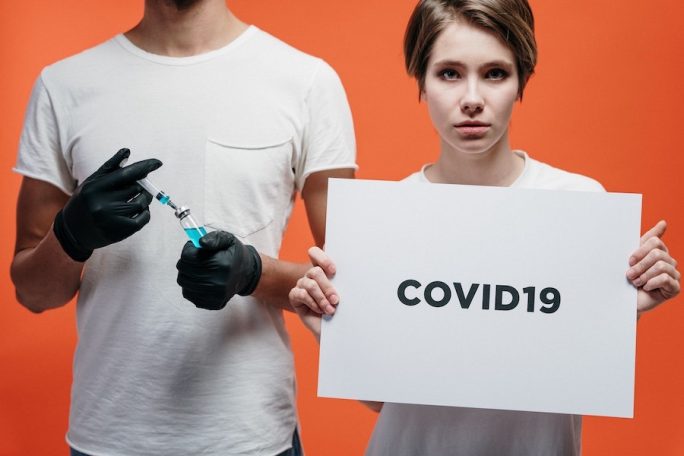In Defence of The Enlightenment (Covid-19 as a Rorschach Test for Sane and the Credulous) oped by Jaymes Gleeson.
The “information age” wasn’t meant to be like this. The internet was supposed to increase society’s knowledge of the world, instead it has virtually destroyed the hitherto sturdy platform of “objective truth”, without which, meaningful, strategic action is impossible. Truth has become irrelevant, and the childish credulity of many of our fellow citizens is truly frightening for what it portends, and as astonishing as it was unforeseeable. Yet, in a dark way, it is also not without its comic value.
One of the great philosophical questions is an epistemological one: what is truth? And how do we know what we think we know is true? From Rene Descartes (“I think therefore I am”), through David Hume (“reason is the discovery of truth or falsehood”), to the present day, the Western Tradition has struggled with this fundamental problem. If we don’t know what is true, what is our basis for action of any kind? The problem persists to the present day in a virulent form.
Bertrand Russell famously said “I would never give my life for my beliefs, because I might be wrong”. The smarter the person, the more they doubt their position. They look for arguments against what they think they know, seeking out contrasting opinions as a means of testing their position, constantly scanning for contrary currents and assessing their validity.
The more foolish the person, the more cocksure of their position, wearing their insecurity like a badge of honour, taking great care to avoid perspectives that might undermine their carefully crafted, angrily defended bubble of security. Ironic how the insecurity of the person manifests in the security of the opinion. And vice versa.
An “informed” position presupposes, firstly, a capacity for critical thinking, which includes but is not limited to, the assiduous avoidance of ‘confirmation bias’, then, a framework of understanding of the topic at hand, and finally, a thorough comprehension of the writings of the most respected scholars / thinkers in that field.
Without these prerequisites, anyone who claims to have a direct line to the truth, or even a position reputable enough to be in the public domain, should instead, find a happy home on ‘entertainment’ broadcasts, in sharp distinction from those who in their professional capacity provide rigorously researched analyses.
Within the bounds of the expressible, there exists a range of divergent views. In politics, for example, one might have a deep-seated resentment for taxes, abortion rights, foreigners, and change of any kind, you know, a garden variety conservative; yet he would still be considered within the spectrum of the sane. Equally, a tofu- eating pacifist, with dreadlocks, nipple piercings and a penchant for hackysack and Marx’s Das Kapital would comfortably fit within the same spectrum of sanity, although at its opposite end.
There was a time when blue-ribbon crack-pots were locked outside the structure of public discourse, gawking through the window like the confused fools they most surely are. But now, to the enormous damage of us all, they have entered the building.
A most unsettling combination of character traits is the triple threat of ignorance, sanctimoniousness and intransigence. Unsettling, that is, for us, not them, because as the Dunning-Kruger effect makes clear, they are too stupid to know how stupid they are.
Recently, I suggested a colleague should reconsider his “conclusion” regarding the Covid protocols by means of the application of critical thinking and a more rigorous research methodology. He looked at me as though I’d just defecated in his jacuzzi. I changed the subject.
Some, like my colleague, are beyond reach, and that’s okay, but although such shameless bloviation is annoying, it is often very funny too. Exhibit A: Marjorie Taylor-Green, a Republican member of congress in the US, blamed recent Californian wildfires on “Jewish space lasers”. It takes a special kind of skill to coin a phrase that is both pithy and degenerate: a combination of child-like ignorance, anti-Semitism, xenophobia and low IQ stupidity. In a pub it’s funny; in the halls of power; it’s frightening.
Anti-vaxxers are a peculiar breed. On a Venn diagram, I wonder what the crossover would be with ‘flat-earthers’, moon landing hoax believers, and 9-11 conspiracy theorists? You can draw your own conclusions, and your own diagram.
But in their defence, distrust of the government is an understandable position to take. But as an addendum, regarding the question of justifiable coercion, the onus should always be on those who are coercing to justify why, not on those who are being coerced to justify why not. If such a justification cannot be made, the coercion ought to be considered unjustified and disobeyed, and the framework in which it exists dismantled.
There have been situations in which you could make the case for justified coercion, such as conscripting soldiers during World War II, or turning off all lights during air raids. Sometimes there are powerful, persuasive and ultimately justifiable.
The Dunning–Kruger effect is a hypothetical cognitive bias stating that people with low ability at a task overestimate their own ability, and that people with high ability at a task underestimate their own ability arguments for coercion, which brings me to Covid 19 restrictions and mandated vaccinations.
There is an avalanche of easily verifiable evidence of the highest standard 21st century science can provide both of the danger of Covid 19 and the efficacy of vaccinations. Given this, surely there is a justification for temporary governmental coercion: vis-a-vis restricted movement, masks, and mandatory vaccinations?
John Stuart Mill articulated the harm principle in his book On Liberty, where he argued that “The only purpose for which power can be rightfully exercised over any member of a civilized community, against his will, is to prevent harm to others.”
An equivalent was earlier stated in France’s Declaration of the Rights of Man and of the Citizen of 1789 as, “Liberty consists in the freedom to do everything which injures no
one else; hence the exercise of the natural rights of each man has no limits except those which assure to the other members of the society the enjoyment of the same rights.
These limits can only be determined by law.”
This is entry level morality. If you’re not willing to rise to this level then you have no business even talking about freedom for yourself, let alone agitating for it. The
argument that you will not get vaccinated because it is an impingement on your freedom is myopic self-centered rubbish. Being unvaccinated is a clear and present
danger to other people, and as such, is the limit of freedom as espoused by John Stuart Mill and the Declaration of the Rights of Man and of the Citizen.
If The Enlightenment taught us anything, it was to move beyond the darkness of medieval superstition and cultivate the reasoning mind. Science and its wondrous fruits
are one of The Enlightenment’s most precious gifts to the modern world. We should trust it.
Not everyone’s opinion carries equal weight. The top immunology scientists at the Center for Disease Control, brilliant individuals who have spent their lives intensely
studying viruses like Covid 19, are opinions that actually matter. Who cares what a blow up doll on Fox news has to say about anything, let alone life and death matters? It’s
worse than smarmy blithering; it’s taking up valuable bandwidth in the collective mind, poisoning public discourse, and burying objective truth, in the words of Paul Keating,
under a fetid pile of “pre-Copernican obscurantism”.
A little more rationality, with a dash of Cartesian common sense, and a lot less pompous, uninformed grandstanding must surely light the pathway from this collective
quagmire.







